How to Start a Jewellery Business in Nigeria in 7 Steps

by Counseal Team
Updated July 26, 2024
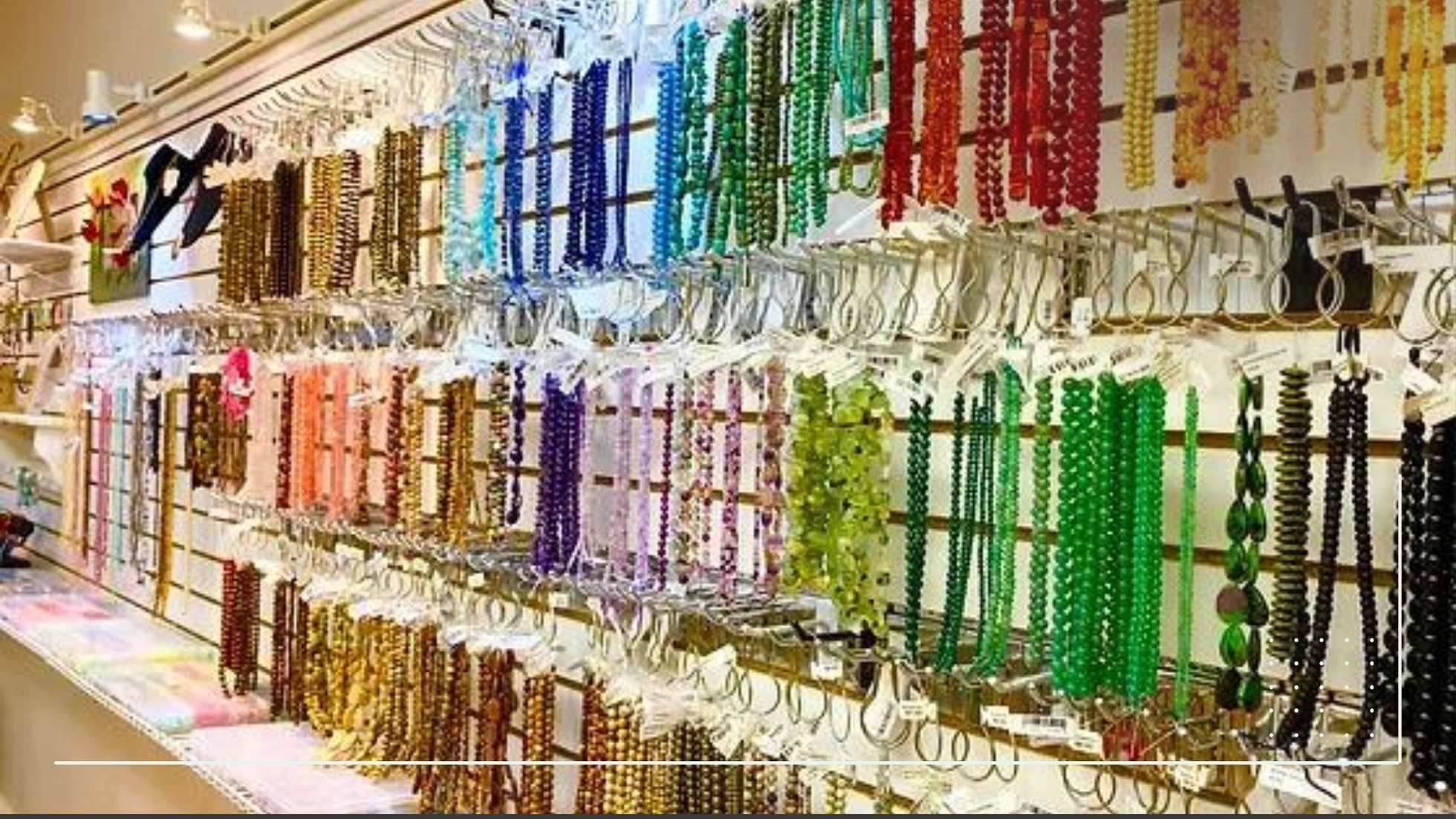
Do you have a passion for all things glittery and a keen eye for design?
If yes, starting a jewellery business in Nigeria could be your golden ticket to entrepreneurial success.
The jewellery industry in Nigeria is a profitable and creative venture teeming with opportunities.
From necklaces to bracelets, rings to earrings, Nigerians have a deep-rooted love for jewellery, making it a sound business proposition.
In this article, we’ll walk you through the crucial steps involved in starting a jewellery business in Nigeria.
So, are you ready to turn your sparkle into success? Let’s dive right in!
Quick Takes
How much does it cost to start this business?
The cost of starting a jewellery business in Nigeria depends on several factors, such as the type of jewellery you want to sell, the scale of your business, the location of your shop, the equipment you need, and the source of your jewellery suppliers. Here are some estimates of the startup costs for different jewellery businesses in Nigeria:
- Small-scale jewellery business: This involves buying and selling jewellery in small quantities, usually without a shop. The startup capital ranges from ₦500,000 to ₦2,000,000, depending on the quality and quantity of the jewellery you buy. Source your jewellery locally or order them from abroad in small quantities.
- Jewellery flipping business: This involves buying used jewellery from people and reselling them for profit. The startup capital varies depending on the demand and supply of used jewellery in your area. You may need to invest in some tools to clean and polish the jewellery before selling them.
- Jewellery wholesale business: This involves buying jewellery in bulk from manufacturers or suppliers and selling it to retailers or customers. The startup capital may be higher than the other types, as you will need to buy large quantities of jewellery at a lower price and store them in a secure place. You may also need to pay for shipping and customs fees if you import your jewellery from abroad.
- Bead jewellery-making business: This involves making your own jewellery from beads and other materials. The startup capital is lower than the other types, as you will only need to buy the raw materials and tools to make the jewellery. You can also customise your jewellery according to your customers’ preferences and sell them online or offline. The estimated starting cost of a jewellery business is approximately ₦500,000. However, this varies depending on the type of jewellery, the market, and the location of your business. Therefore, it is advisable to do your own research and plan your budget carefully before starting a jewelry business in Nigeria.
How much can you make per month?
The amount of money you make per month from a jewellery business in Nigeria depends on various factors, such as the type of jewellery you sell, the volume of sales, the profit margin, and the expenses. Here are some scenarios:
- If you run a small-scale jewellery business, buying, and selling jewellery in small quantities, you may earn an average monthly income of ₦600,000, assuming you sell 100 pieces of jewellery at an average price of ₦10,000 and a profit margin of 20%.
- If you run a jewellery flipping business, buying used jewellery from people and reselling them for profit, you may earn an average monthly income of ₦300,000, assuming you buy 50 pieces of jewellery at an average price of ₦5,000and sell them at an average price of ₦10,000 and a profit margin of 50%.
- If you run a jewellery wholesale business, buying jewellery in bulk from manufacturers or suppliers and selling them to retailers or customers, you may earn an average monthly income of ₦1,500,000, assuming you buy 1,000 pieces of jewellery at an average price of ₦5,000 and sell them at an average price of ₦10,000 and a profit margin of 50%.
- If you run a bead jewellery-making business, making your own jewellery from beads and other materials, you may earn an average monthly income of ₦200,000 assuming you make 100 pieces of jewellery at an average cost of ₦1,000 and sell them at an average price of ₦3,000 and a profit margin of 66.67%. Of course, these are rough estimates, and your actual income may vary depending on the market demand, the quality of your jewellery, the competition, and the expenses. You will also need to pay taxes, rent, salaries, and other costs associated with running a jewellery business. Therefore, it is advisable to do your own research and plan your budget carefully before starting a jewellery business in Nigeria.
What is the minimum required to start this business?
The minimum required to start a jewellery business in Nigeria depends on the type of jewellery business you want to start. These are the minimum requirements for different jewellery businesses in Nigeria:
- Small-scale jewellery business: You need at least ₦500,000 to buy some jewellery in small quantities and a smartphone or a laptop to market your jewellery online.
- Jewellery flipping business: You may need at least ₦100,000 to buy some used jewellery from people and tools to clean and polish the jewellery before selling them.
- Jewellery wholesale business: You may need at least ₦5,000,000 to buy jewellery in bulk from manufacturers or suppliers and a warehouse or a shop to store and sell your jewellery. You may also need to pay for shipping and customs fees if you import your jewellery from abroad.
- Bead jewellery making business: You may need at least ₦50,000 to buy the raw materials and tools to make your own jewellery from beads and other materials. These are rough estimates and your actual minimum requirements may vary. Do your own research and plan your budget carefully before starting a jewellery business in Nigeria.
What are the best states to start this business?
Based on the web search results, some of the best states in Nigeria to start a jewellery business are:
- Lagos state: Lagos is one of Africa’s busiest and most cosmopolitan cities, with a population of over 20 million people and a large and diverse market for jewellery. Lagos also has robust infrastructure, government business support, and a well-connected ecosystem, making it an attractive option for entrepreneurs and firms wishing to prosper in Nigeria.
Lagos accounts for 90% of the country’s foreign trade flow and provides over 30% of Nigeria’s GDP growth. The state government also offers various tax incentives and subsidies to business owners, as well as a CARES Grant Program for Entrepreneurs/Business Owners. Lagos is also home to two of Nigeria’s major ports: Lagos Port Complex and Tin Can Island Port Complex, which connect Lagos to suppliers and markets both locally and internationally.
- Kaduna state: According to a World Bank analysis from 2018, Kaduna is the best state in Nigeria for doing business. The state is also Nigeria’s third-largest consumer market, with a demand for goods and services in all sectors. The state’s economy is diverse, having opportunities in a variety of industries, such as agriculture, mining, manufacturing, and services. The state government also provides a conducive environment for business, with policies such as the Ease of Doing Business Charter, the Kaduna Investment Promotion Agency, the Kaduna Geographic Information Service, and the Kaduna State Development Plan. Kaduna also has a strategic location, being close to the capital city of Abuja and the northern commercial hub of Kano.
- Kano state: Kano is the most populous state in Nigeria, with an estimated population of over 20 million people. It is also the commercial and industrial centre of northern Nigeria, with a vibrant market for jewellery and other commodities. Kano is the most prominent of the trading points of jewellery in Nigeria, where the Hausas dominate most of the jewellery business operating it as a pawnshop. Kano also has a rich history and culture of jewellery making, especially goldsmithing, which dates to the 14th century. Kano also has a large pool of skilled labour, suppliers, and artisans who produce quality and affordable jewellery.
These are some of the best states in Nigeria to start a jewellery business. However, you may also consider other factors, such as your personal preferences, target market, and availability of resources, before making your final decision.
What are the known examples of this business?
There are many examples of jewellery businesses in Nigeria, ranging from small-scale to large-scale, and from handmade to imported. Based on the web search results, here are some of the known examples of jewellery businesses in Nigeria:
- Circa 64 : This is a jewellery brand that specialises in creating unique and personalised pieces of jewellery using precious metals and gemstones. Oluwaseyi Olusanya, a self-taught jewellery designer who started making jewellery as a hobby, founded the brand. Circa 64 offers services such as custom orders, repairs, and engraving.
- Kunbi Works : This is a jewellery brand that focuses on creating contemporary and minimalist pieces of jewellery using sterling silver, gold-filled, and brass materials. The brand was founded by Kunbi Oyelese, a lawyer turned jewellery designer who discovered her passion for jewellery making while studying in the UK. Kunbi Works also offers jewellery-making workshops and classes2.
- Hadash Jewellery: This is a jewellery brand that caters to corporate and upscale women who need elegant and sophisticated pieces of jewellery for different occasions. Hadassah Ogunleye, a certified gemologist, and jewellery designer who has a flair for working with pearls, agate stones, and gemstones, founded the brand. Hadash Jewellery also provides jewellery consultancy and advisory services.
- Itoro Okon : This is a jewellery brand that creates bold and colourful pieces of jewellery using beads, crystals, and metals. Itoro Okon, a former banker and fashion enthusiast who started making jewellery as a hobby, found the brand. Itoro Okon also runs a jewellery academy where she trains aspiring jewellery makers.
- Bimbeads : This is a jewellery brand that produces and designs beaded jewellery using gemstones and other quality materials. Bimbo Balogun, a trained architect, and jewellery designer who has a passion for beads and gemstones, founded the brand. Bimbeads also offer training and mentorship programs for young jewellery makers.
- Zivanora : This is a Jewellery brand that designs and creates Jewellery for men and women who prefer chic, and simple pieces of Jewellery. Dennis Isong, a graphic designer, and Jewellery maker who has a clean and minimalist design style founded the brand. Zivanora also offers custom orders and personalisation services.
- Gbenga Artsmith Collections : This is a Jewellery brand that crafts beautiful Jewellery for men and women who love to make a statement with their accessories. Gbenga Ayo-Dada, a journalist and Jewellery designer who has a knack for creating artistic and innovative pieces of Jewellery, founded the brand. Gbenga Artsmith Collections also offers bridal jewellery and styling services.
- Treasures by Isura: This is a Jewellery brand that aims to create timeless and classy pieces of Jewellery that can be passed down through generations. The brand was founded by Isura Oyindamola, a lawyer and Jewellery designer who has a love for gemstones and precious metals. Treasures by Isura also offer Jewellery appraisal and valuation services.
These are some of the known examples of Jewellery businesses in Nigeria. However, there may be more examples that are not listed here. You can also check out the websites or social media pages of these brands to learn more about their products and services.
Step 1: Find Your Niche and Style
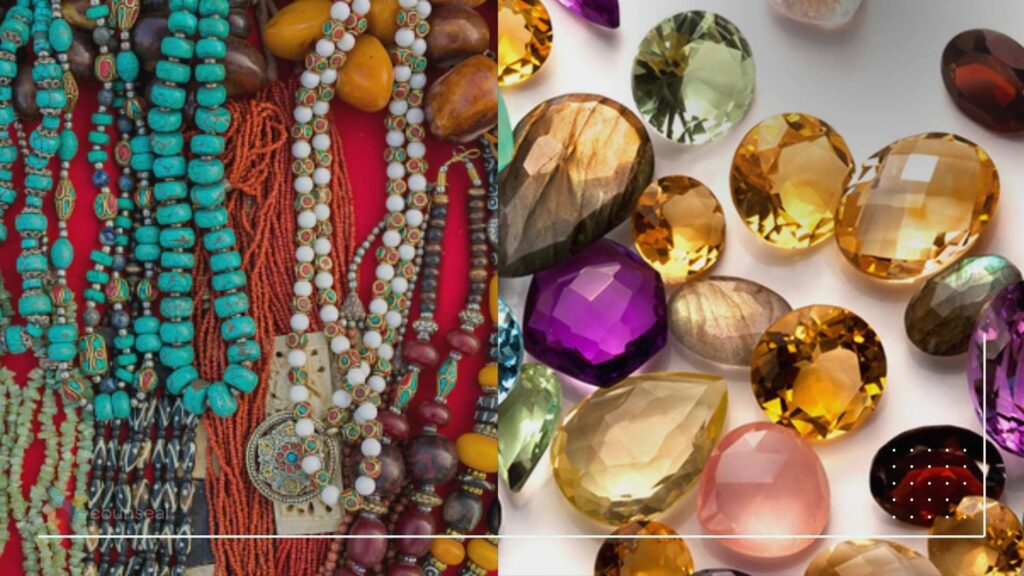
As an entrepreneur looking to start a business in Nigeria, your first step is to identify your niche and style. Why so?
Well, finding a niche that matches your passion and skills guides you towards a target market with specific needs. With this, you can create products that meet these needs, giving you an edge in the market.
For example, let’s talk about the jewellery industry. There’s a wide range of niches and styles in Nigeria – traditional, contemporary, ethnic, minimalist, and so on. Each carries its unique appeal and target audience. Say you have a knack for minimalist designs at https://howtocancelmytimeshare.com/learn/how-to-cancel-diamond-resorts-timeshare/, your target market might be the young, urban professionals who prefer sleek, simple yet elegant pieces.
So, how do you research your niche and style? It’s simpler than you think. Browse online platforms like Instagram and Pinterest for inspiration, visit local markets to understand current trends, or even follow international trends and adapt them to the Nigerian context.
But don’t take my word for it. Let’s look at a real-life success story. Meet Ada, a successful Nigerian jewellery entrepreneur. She found her niche in creating contemporary pieces inspired by traditional Nigerian symbols, and her style has been a hit! Her unique approach not only set her apart but also attracted a loyal customer base who appreciates her fusion of modern and traditional designs.
Remember, the goal is to find a niche and style that resonates with you and your potential customers. That’s your first step towards building a successful business in Nigeria.
Step 2: Plan Your Business

Before you dive headfirst into the business world, take a step back and plan. Why? Because planning your business is not just a step; it’s a leap towards success. It’s your business GPS, guiding your path, helping you avoid pitfalls, and ensuring that you reach your desired destination—profitability and growth.
The Art of Business Planning
A business plan is your business blueprint, outlining your business’s future trajectory. It’s not just a document; it’s a roadmap, a tool to attract investors, and a guide for your business decisions. But what makes a good business plan? Let’s dissect it.
- Mission Statement: This is your business’s heart. It’s why you exist. What purpose does your business serve? What values guide it? Your mission statement answers these questions.
- Goals: These are your business’s brains. They’re what you aim to achieve. Short-term or long-term, financial, or non-financial, they provide direction and set the tone for your business strategies.
- Market Analysis: This is your business’s eyes. It helps you understand the market you’re venturing into. Who are your customers? What are their needs, preferences, and buying behaviours?
- Competitive Analysis: This is your business’s ears. It helps you listen to the competition. What are their strategies, strengths, and weaknesses? How can you differentiate your business?
- Marketing Strategy: This is your business’s voice. It’s how you communicate your value proposition to your target customers. How will you price, promote, and distribute your products or services?
- Financial Plan: This is your business’s lifeblood. It’s your financial blueprint, projecting your revenues, costs, and profitability.
How To Craft Your Business Plan
You’ve got the key elements, so how do you go about writing a business plan? Here are some tips:
- Use Online Templates, Tools, or Guides: There are a plethora of resources available online. Templates provide a ready-made structure, tools can help with calculations and formatting, and guides offer step-by-step instructions. Counsel has a free business plan generator here.
- Consult Experts: Consider seeking guidance from industry experts, business consultants, or even seasoned entrepreneurs. Their knowledge and experience can provide invaluable insights.
- Check Out Sample Plans: Analysing sample business plans can give you a concrete idea of what a good business plan looks like.
Remember, your business plan isn’t set in stone. It should be a living document, adapting and evolving as your business grows. So, are you ready to plan your way to success?
Step 3: Register Your Business

Registering your business is crucial to operating legally in Nigeria. It’s not just about getting your company’s name on official records. It’s about legitimising your business, gaining the trust of investors, and, of course, adhering to the country’s legal and tax requirements. Trust me, you don’t want to tangle with the taxman.
So, where do you start? Here’s a quick rundown of the steps involved:
- Decide on a Business Name: This is more than just a name; it’s your brand, your identity. Make sure to choose a name that reflects your business’s essence and is easily identifiable.
- Choose Your Business Structure: Whether it’s a sole proprietorship, partnership, or limited liability company, your business structure will determine your legal responsibilities, including taxes and paperwork.
- Pick Your Business Location: Your business location significantly affects your operation costs, tax obligations, and legal requirements.
- Get a Business Permit: Depending on your business, you may need specific permits or licences. Ensure you understand what’s required in your industry.
- Get a Tax Identification Number (TIN): This is a must-have for all businesses in Nigeria. The TIN is a unique identifier assigned by the Federal Inland Revenue Service (FIRS) for tax purposes.
If all that sounds a tad daunting, don’t worry, you’ve got options. You can either brave the process yourself or hire a lawyer to guide you through the labyrinth. If you decide to do it alone, the Corporate Affairs Commission (CAC) website is your starting point. Here, you’ll find all the information and can even register your business online.
Remember, the goal here is to simplify the process, not complicate it. So, if you’re not comfortable navigating the legal terrain, hiring a professional will be your best bet. After all, as an entrepreneur, your focus should be on growing your business, not getting tangled in red tape.
And there you have it! Registering your business in Nigeria doesn’t have to be a Herculean task. With a little guidance and the right resources, you’ll be up and running in no time. Visit the Corporate Affairs Commission’s official website for more information. Best of luck on your entrepreneurial journey!
Step 4: Source Your Materials and Equipment
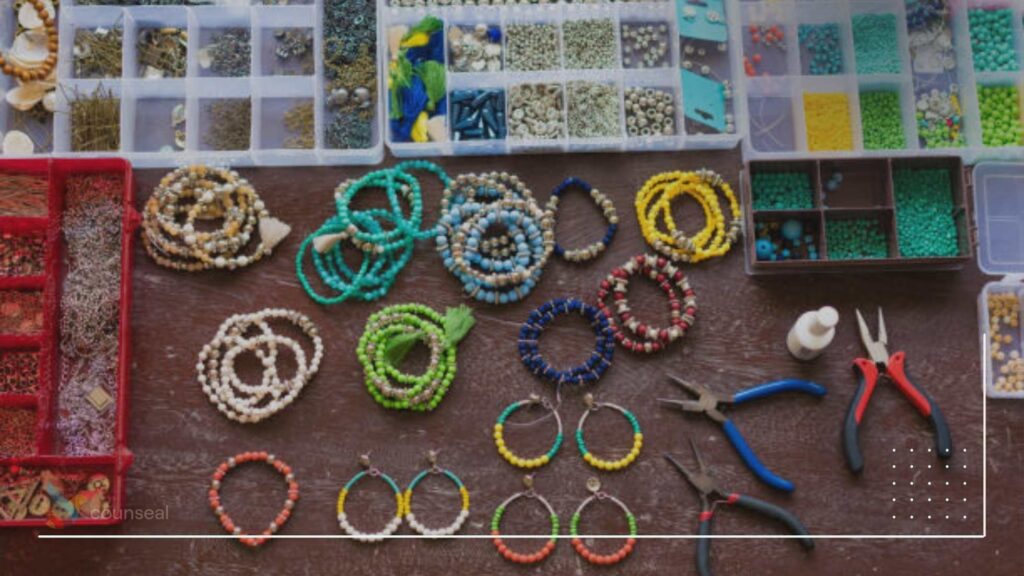
I bet you’ve heard that age-old saying, “A workman is only as good as his tools”. Well, in the world of a Jewellery business, this couldn’t be truer.
The quality of your materials and equipment can make or break your business. Why, you ask? Simple, the superior your materials and tools, the superior your product.
And let’s not forget, a happy customer is a repeat customer. Your reputation hinges on the quality of your pieces, and that begins with your raw materials and equipment.
So, Where Can You Source Your Materials and Equipment?
We live in a digital age, my friends, and the world is your oyster. Online platforms like Alibaba and Etsy offer a plethora of suppliers for all your Jewellery-making needs. But don’t discount the value of local suppliers and wholesalers. They not only support the local economy, but they could also turn out to be hidden gems offering unique materials unavailable elsewhere.
Choosing and Negotiating with Suppliers: The Art of the Deal
Choosing a supplier is like choosing a life partner: you want reliability, quality, and someone who delivers on time. When comparing suppliers, consider their prices, but don’t let that be your only deciding factor. Quality and punctual delivery are equally, if not more, important. Remember, your reputation is at stake.
Negotiating with suppliers is an art form. Don’t be afraid to compare prices and ask for discounts. Sometimes, it’s as simple as asking. Also, consider the perks of long-term relationships. Suppliers are more likely to offer better deals to loyal customers.
Step 5: Create Your Jewellery Collection
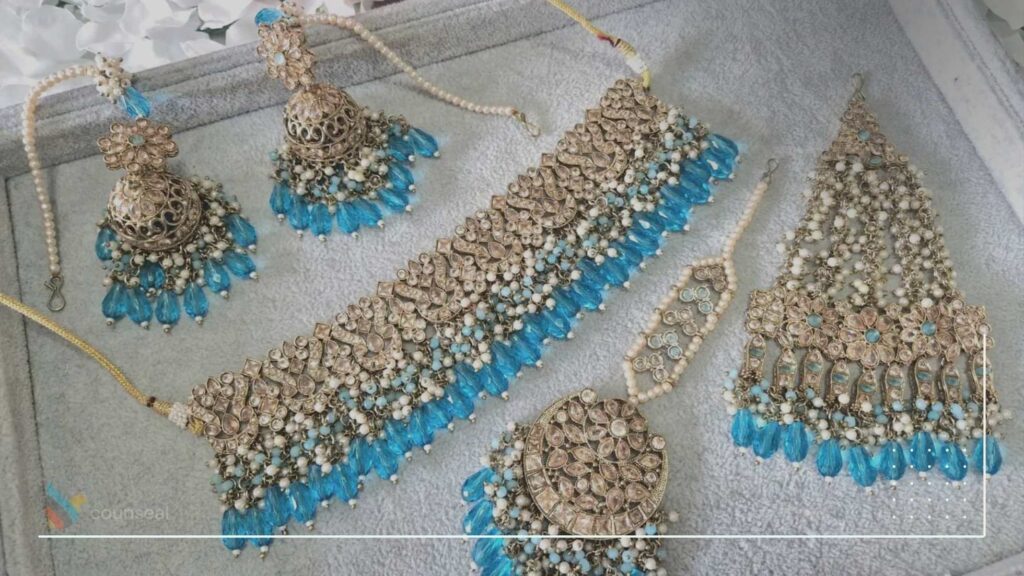
Ready to roll up your sleeves? It’s time to craft your unique jewellery collection. This is where your creativity takes centre stage! A distinct, attractive collection that speaks of your style and niche is key to standing out in the Nigerian Jewellery scene. It’s not just about aesthetics, it’s about telling a story, your story.
The Making of Your Masterpieces
Creating a jewellery collection is a process, a beautiful one at that. It all kicks off with an idea, a vision. Translate that into a tangible form through designing and sketching your pieces. This is where you can let your imagination run wild!
Next, comes prototyping. This step breathes life into your designs. It’s always exciting to see your sketches take a 3D form, isn’t it? But remember, perfection takes time and trials. There might be tweaks needed, and that’s okay. Testing your prototypes is crucial before you launch your collection.
Creating Cohesion in Your Collection
Consistency is the magic word. A cohesive collection speaks volumes about your brand. Think of it this way: each piece of Jewellery is a sentence, your collection, a captivating story. How do you achieve this?
Start by choosing a theme. It could be anything that inspires you – nature, architecture, culture, or even a mood. Next, decide on a colour palette that aligns with your theme. This injects a visual consistency into your collection.
Your choice of materials also plays a significant role in creating a cohesive collection. Experiment with different materials – metals, beads, gemstones, leather, the possibilities are endless. But remember, the materials you choose should reflect your brand’s ethos and the story you want to tell.
Creating your Jewellery collection is a journey, a journey of self-expression. So, get your creative juices flowing and let’s create some magic, shall we?
Step 6: Price Your Jewellery

Pricing your jewellery correctly and competitively is a critical aspect of your business success. It’s not just about covering your costs; it’s about achieving a fair profit margin that sustains your business and fuels growth.
A price tag that’s too high could scare off potential customers, while a price that’s too low could leave you operating at a loss.
What to Consider When Pricing Your Jewellery
The cost of materials is a fundamental factor when setting your price. From the precious metals and gemstones you use to the thread and clasps, every material has a cost, and that cost should be reflected in your final price.
Labour is an essential factor to consider, especially if you’re handcrafting your pieces. It’s easy to overlook the value of your time, but remember, your skills are valuable, and the time you spend creating each piece should be adequately compensated.
Overhead costs such as rent, utilities, marketing costs, packaging, and shipping also need to be factored into your pricing strategy. These costs are part of doing business and should be distributed among the pieces you sell.
Profit margin is your reward for taking the risk of starting a business. It’s what will help you grow your business, invest in new designs, and weather the ups and downs of entrepreneurship. Aim for a fair profit margin that benefits both you and your customers.
Market demand is another key factor to consider. If your jewellery is in high demand, you might be able to command a higher price. In contrast, if the market is saturated with similar products, you may need to price more competitively.
Practical Tips for Pricing Your Jewellery
Online calculators and tools can be a great help when calculating the cost of materials, labour, and overheads. They can help you keep track of your costs and ensure you’re pricing your pieces accurately.
Researching your competitors is also a valuable strategy. By understanding what others in your niche are charging, you can position your prices competitively. Please remember, it’s not about undercutting your competitors, but about offering fair value for your unique designs and quality craftsmanship.
Remember, pricing is both an art and a science. It requires understanding your costs, knowing your market, and having a clear vision for your business. But, with careful thought and a bit of maths, you can set prices that are fair, competitive, and profitable.
Step 7: Market and Sell Your Jewellery
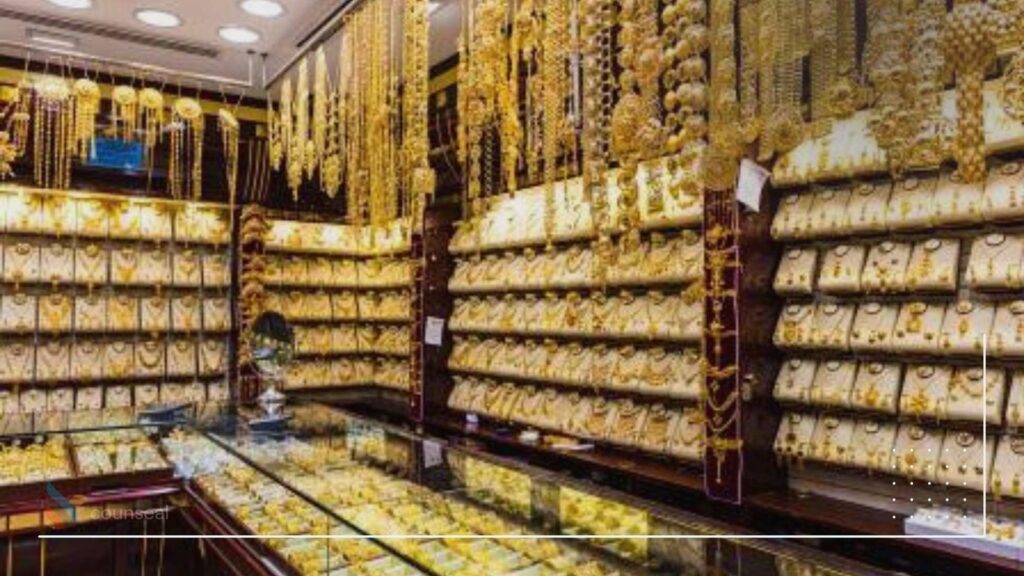
Ah, marketing! That crucial activity that breathes life into your business. Now that you’ve crafted your unique pieces, it’s time to get them noticed by your target customers. Remember, your jewellery won’t sell itself; it’s your job to make it irresistible.
Unveiling the Marketing Channels
With marketing your jewellery, the world is your oyster. The key is finding the right mix of channels to reach your audience effectively.
Online platforms are a fantastic place to start. Websites like Etsy, Jumia, and Konga allow you to reach a wide audience without leaving your home. But don’t stop there!
Social media platforms like Instagram and Facebook are your best friends. These platforms are free marketing tools, where you showcase your pieces and interact with your potential customers.
Don’t overlook the power of a well-designed website or engaging blog posts, either. These platforms are your chance to tell your brand’s story, showcase your designs, and build a loyal customer base.
Top Tips for Marketing and Selling Your Pieces
Let’s dive a bit deeper now. How can you make your brand stick in the minds of your customers? Here are a few tips:
- Create a strong brand identity: This is more than a logo or a catchy slogan. Your brand identity should encapsulate the essence of your business, your designs, and your values.
- Stunning packaging: Never underestimate the impact of unboxing. Investing in beautiful packaging can create a memorable experience for your customers and set you apart from the competition.
- Leverage on social media: Regularly post engaging content on your social media platforms. Use high-quality images, share behind-the-scenes glimpses, and engage with your audience.
- Excellent customer service: This is non-negotiable. Treat your customers like royalty and they will not only come back for more but also become ambassadors for your brand.
So there you have it. Marketing and selling your jewellery may sound daunting, but with these tips, you’re well on your way to building a successful jewellery business.
Remember, consistency is key. Keep refining your strategy, engaging with your audience, and most importantly, creating stunning pieces.
Frequently Asked Questions
How do I register my Jewellery business name in Nigeria?
To register your Jewellery business name in Nigeria, you need to follow these steps:
- Visit the Corporate Affairs Commission (CAC) website and check the availability of your desired business name. Use the CAC Public Search tool to see if your name is already taken or not.
- Fill out the online application form for business name reservation and pay the required fee of N500. Choose up to two alternative names in case your first choice is not available.
- Wait for the approval of your business name reservation, which usually takes one to two days. You will receive a confirmation email from the CAC with your reservation code.
- Visit the CAC office nearest to you and submit the following documents:
- A printout of the confirmation email with the reservation code.
- A valid means of identification, such as a national ID card, driver’s licence, or passport.
- Two passport photographs.
- Collect your certificate of business name registration, which usually takes one to two weeks. You can also check the status of your registration online using your reservation code.
What are the best materials to use for making Jewellery in Nigeria?
The best materials to use for making Jewellery in Nigeria depend on your budget, style, and market preferences. However, some of the most popular and profitable materials are:
- Metals, such as gold, silver, copper, brass, bronze, etc. Metals are durable, versatile, and easy to work with. They can also be plated, polished, or oxidised to create different effects and finishes.
- Gemstones, such as diamonds, rubies, sapphires, emeralds, etc. Gemstones are precious, rare, and beautiful. They can add sparkle, colour, and value to your Jewellery products. However, they are also expensive, fragile, and require special care and handling.
- Beads, such as glass, ceramic, wood, plastic, etc. Beads are cheap, colourful, and fun. They can be used to create various patterns, shapes, and styles of Jewellery. However, they are also lightweight, low-quality, and prone to breakage.
- Other materials, such as leather, fabric, feathers, shells, etc. Other materials are creative, unique, and eco-friendly. They can be used to create Jewellery with a natural, rustic, or ethnic vibe. However, they are also difficult to source, maintain, and preserve.
How do I price my Jewellery products in Nigeria?
To price your Jewellery products in Nigeria, you need to consider the following factors:
- Costs, such as the costs of materials, labour, overhead, packaging, shipping, etc. You need to calculate the total cost of making and selling each Jewellery product and add a markup percentage to cover your profit margin.
- Value, such as the value of your Jewellery products to your customers, based on their quality, design, uniqueness, and benefits. You need to estimate how much your customers are willing and able to pay for your Jewellery products and adjust your prices accordingly.
- Demand, such as the demand for your Jewellery products in the market, based on the trends, seasons, occasions, and customer segments. You need to research the market demand for your Jewellery products and increase or decrease your prices depending on the supply and demand.
- Competition, such as the prices of your competitors in the market, based on their products, features, strengths, weaknesses, and strategies. You need to compare your prices with your competitors and position your Jewellery products as cheaper, similar, or premium, depending on your target market and competitive advantage.





